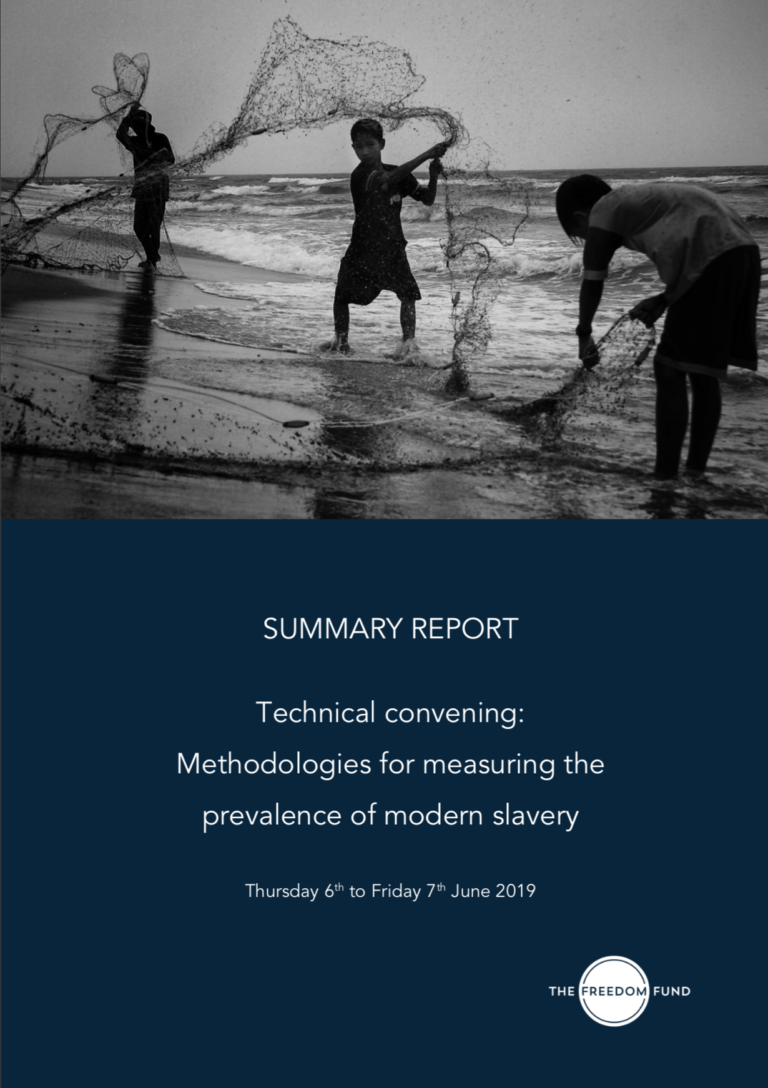In the last five years, there has been growing attention and investments into prevalence estimates.
The increasing investment into prevalence estimates is much welcomed, but it has also led to fragmented efforts among researchers. People at The Freedom Fund have observed disparate groups of experts – often separated by geographies and subject areas – developing definitions, methodologies and tools in parallel and not always in accord with one another.
To help foster alignment, the Freedom Fund hosted this Technical Convening with three explicit objectives:
- To bring together leading researchers in the global modern slavery movement;
- To build consensus around promising methods; and
- To encourage cross-pollination of techniques and tools.
The Freedom Fund’s technical convening – titled ‘Methodologies for measuring the prevalence of modern slavery’ – took place in London on 6th to 7th June 2019. The event brought together leading researchers, government representatives and funders to discuss the methods and challenges of measuring child exploitation, forced labour, debt bondage, commercial sexual exploitation and forced marriage. Through a series of panel and group discussions, the convening sought to build consensus on future directions for the field, and to encourage cooperation, cross-pollination and sharing of expertise. This report summarises those discussions but does not necessarily represent the views of all participants.

